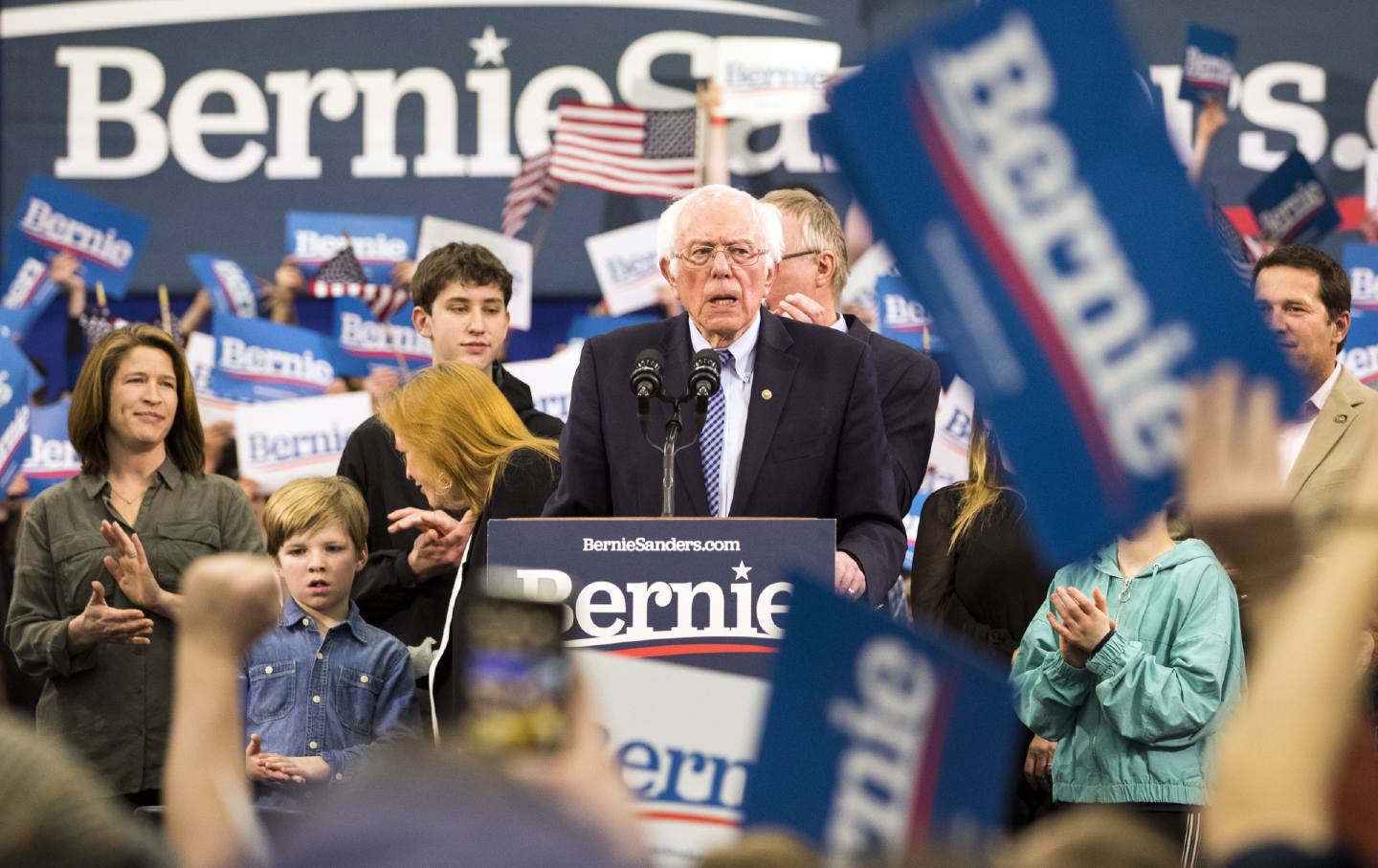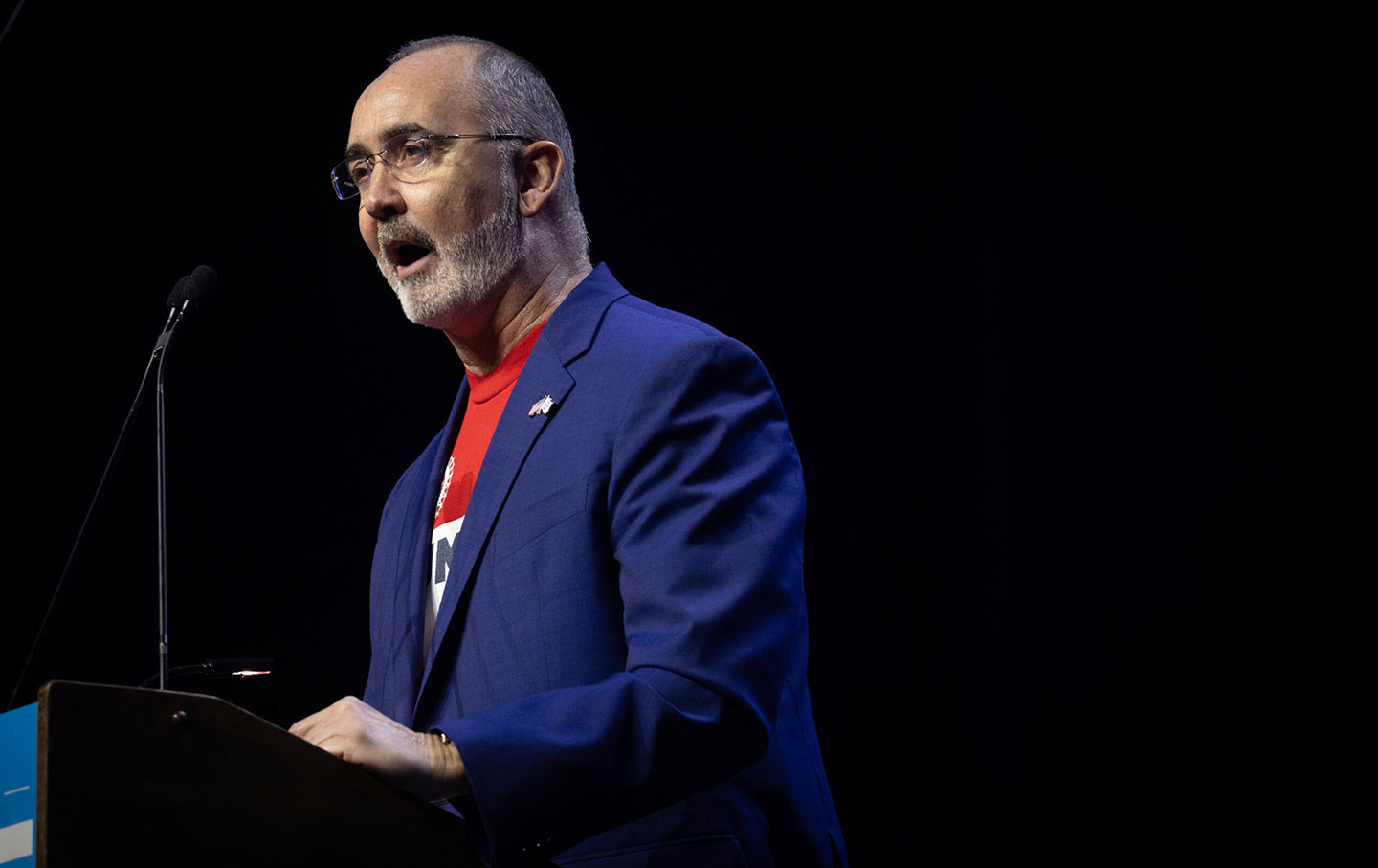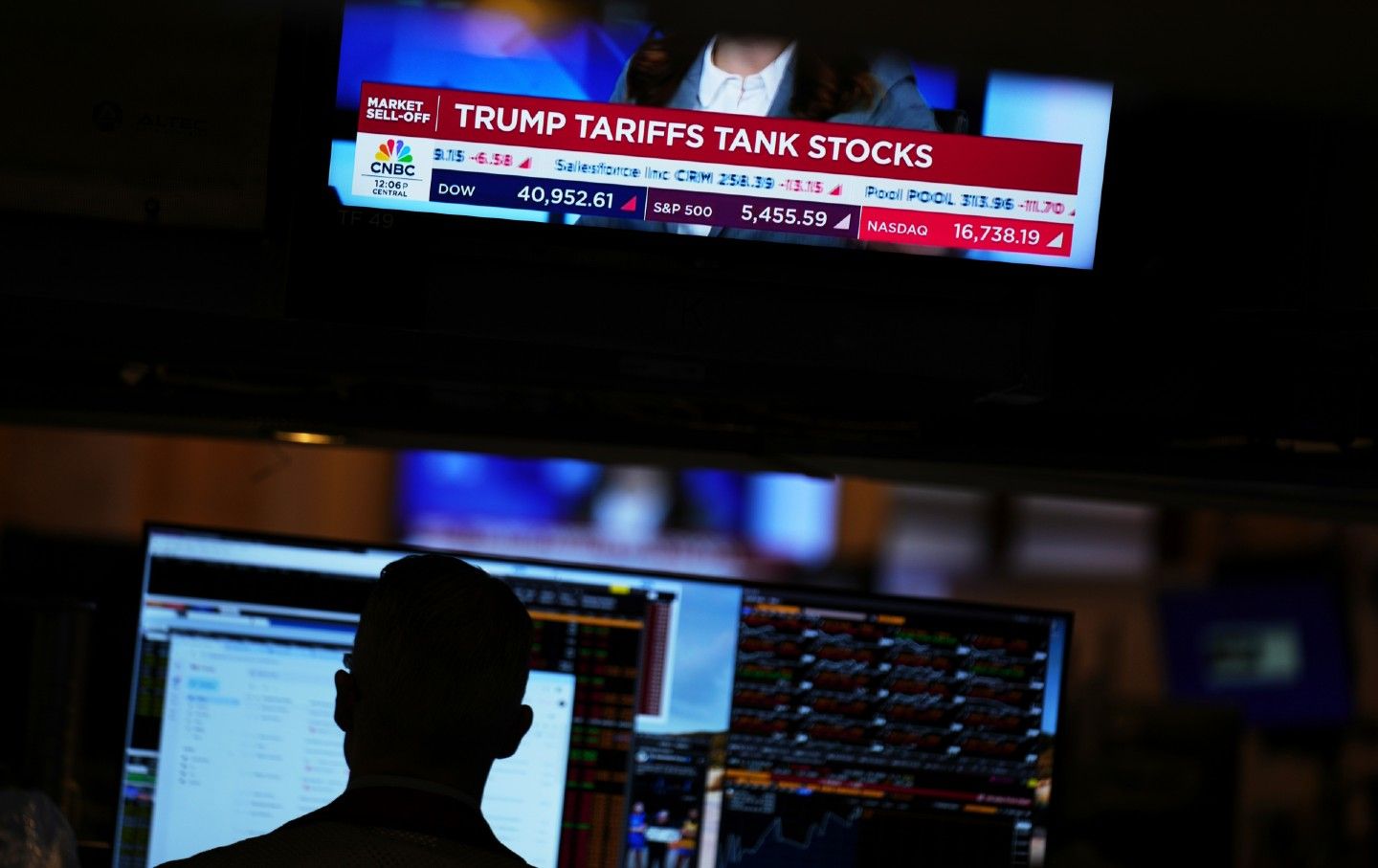Bernie Sanders Is Right: Democrats Have Abandoned the Working Class
The party chased former Republicans and rich donors, while alienating the working-class majority.

Vermont Senator Bernie Sanders has quickly emerged as the most important and polarizing voice in the struggle over the future of the Democratic Party. In response to Donald Trump’s victory in the presidential contest, Sanders on Wednesday penned a scathing analysis in which he noted,
It should come as no great surprise that a Democratic Party which has abandoned working class people would find that the working class has abandoned them…. Will the big money interests and well-paid consultants who control the Democratic Party learn any real lessons from this disastrous campaign? Will they understand the pain and political alienation that tens of millions of Americans are experiencing? Do they have any ideas as to how we can take on the increasingly powerful Oligarchy, which has so much economic power?
Answering his own questions, Sanders declared, “Probably not.”
Sanders’s analysis was shared by many, not only labor leaders such as Painters Union president Jimmy Williams Jr. but also unexpected sources such as Connecticut Senator Chris Murphy, who started his political career as a moderate Democrat. In an X thread on Sunday, Murphy acknowledged that the radical critique of mainstream Democrats was accurate, writing that “when progressives like Bernie aggressively go after the elites that hold people down, they are shunned as dangerous populists. Why? Maybe because true economic populism is bad for our high-income base.”
In contrast to Murphy, other party leaders and pundits remained in deep denial. Responding to Sanders’s comment, Representative James Clyburn, whose endorsement of Joe Biden was crucial for his becoming the party’s presidential nominee in 2020, said, “I do not agree that we are not a party of working men and women…We ought to just chill out for a while…don’t worry about blaming anybody.” Former House speaker Nancy Pelosi was even more curt, saying, “I don’t respect saying that the Democratic Party has abandoned the working class.”
Sanders responded to Pelosi by noting,
“We have not even brought forth legislation to raise the minimum wage to a living wage, despite the fact that some 20 million people in this country are working for less than $15 an hour in America today…if you’re an average working person out there, do you really think that the [D]emocratic party is going to the mats, taking on powerful special interests and fighting for you? I think the overwhelming answer is no.”
One frequent objection to Sanders was that Biden had actually done a great deal for the working class—and also that Bidenomics was a success. This was the tack taken by Will Stancil, a Minnesota attorney who recently failed in his congressional primary campaign but who nonetheless enjoys a large liberal audience on social media. Stancil has been adamant throughout the Biden presidency that any claim that workers are suffering economic distress is merely a creation of biased media coverage. Stancil tweeted, “There’s no actual empirical evidence that workers suffered greatly in the last few years, and a ton of evidence workers prospered.”
Empirically, the vast majority of voters don’t share Stancil’s opinion. On the eve of the election, according to CBS News, 60 percent of Americans rated the economy as “fairly bad” or “very bad.” To dismiss all these voters as victims of brainwashing might be emotionally satisfying—but it is bad politics. In contrast to the empathetic Bill Clinton of the 1990s, Stancil and his ilk are saying, “I don’t feel your pain.”
A more extended version of the Stancil argument was made by Michael A. Cohen—a centrist journalist who frequently and insistently reminds people that he is not Donald Trump’s former lawyer. Writing on MSNBC, Cohen argued that Sanders was flatly wrong. Biden, Cohen contended, has been “staunchly pro-labor”; he also claimed that that Kamala Harris made a concerted effort to foreground economic populism in her political campaign. According to Cohen, “the Harris campaign poured $200 million into ads that focused on her economic message. In fact, she outspent the Trump campaign by around $70 million on ads about the economy.”
Strangely, Cohen ended his article by claiming that, although the Democrats haven’t abandoned the working class, maybe they should do so now. If there is any path for Democrats to return to national power, Cohen suggests, it might lie in “doubling down on what produced such significant political gains for the party in 2018, 2020 and 2022—college-educated suburban voters.” Conversely, Cohen insists that working-class voters are too socially conservative to ever vote for the Democrats, concluding that “if Democrats think they can win back the loyalty of the working class, they likely should think again.”
Cohen apparently agrees with Senate majority leader Chuck Schumer, who in 2016 infamously declared: “For every blue-collar Democrat we lose in western Pennsylvania, we will pick up two moderate Republicans in the suburbs in Philadelphia, and you can repeat that in Ohio and Illinois and Wisconsin.”
Normally, the electorate selects political leaders—but it is also the case that political parties sometimes select their electorate. Democrats like Schumer and Cohen have been eager to make the Democrats into the party of well-to-do, college-educated former Republicans, even at the expense of alienating the working class. Suburban college-educated voters are wealthier, so more able to fill the party’s coffers—and they are less likely to demand economic policies that might alienate even wealthier donors.
What of the claim that Biden was strongly pro-worker, and that Harris did run on economic populism? There’s an element of truth to both, but the reality is that is that both Biden and Harris were compromised figures.
In a clarifying analysis, Stephen Semler, senior fellow at the Center for International Policy, documented that Biden’s focus on economic populism waned in the spring of 2022. According to Semler, “Once Russia invaded Ukraine, Biden ditched his progressive domestic agenda and rebranded as a deficit hawk.” Even as a rhetorical focus, economic populism became less important to Biden than his attempt to revive Cold War liberalism, with the United States pitted against autocratic foes on the international stage and an authoritarian menace at home. As a hawk, Biden started talking much more about the threats to democracy—and much less about how he could improve the lives of ordinary Americans. Washington Post reporter Jeff Stein reports, “Ron Klain, former chief of staff, wanted President Biden to acknowledge the pain the Fed’s high interest rates were causing families and businesses through higher costs. The push was met with resistance from a White House wary of even the appearance of criticizing the Fed.”
Harris was even more tone-deaf on economic pain than Biden. On Saturday, The New York Times reported that the Harris campaign watered down its economic message and policies in order to please wealthy donors—an effort headed by Harris’s brother-in-law, Tony West, an Uber executive. According to the newspaper:
The result was a Democratic candidate who vacillated between competing visions for how to address the economic problems that voters repeatedly ranked as their top issue. Ms. Harris neither abandoned nor fully embraced key liberal goals for confronting corporate power and raising taxes on the rich. Instead, she adopted marginal pro-business tweaks to the status quo that both her corporate and progressive allies agreed never coalesced into a clear economic argument.
Popular
“swipe left below to view more authors”Swipe →Bernie Sanders was right: The Democrats have betrayed the working class. This is not just a matter of one election but goes back to the triumph of neoliberalism within the party’s elite, which started with Jimmy Carter’s winning the presidential nomination in 1976. This process has never been unchallenged: Resistance to the neoliberal turn came from many insurgent campaigns—notably those of Jesse Jackson and Bernie Sanders himself.
The only way out of the neoliberal trap remains the path Sanders laid out in his two primary runs in 2016 and 2020: a small-donor-funded campaign that rejects corporate control and is stridently pro–working class. Sanders is, alas, too old to run again. But the real question for the Democrats is who can emerge as the next Bernie Sanders—and win the 2028 nomination.
Hold the powerful to account by supporting The Nation
The chaos and cruelty of the Trump administration reaches new lows each week.
Trump’s catastrophic “Liberation Day” has wreaked havoc on the world economy and set up yet another constitutional crisis at home. Plainclothes officers continue to abduct university students off the streets. So-called “enemy aliens” are flown abroad to a mega prison against the orders of the courts. And Signalgate promises to be the first of many incompetence scandals that expose the brutal violence at the core of the American empire.
At a time when elite universities, powerful law firms, and influential media outlets are capitulating to Trump’s intimidation, The Nation is more determined than ever before to hold the powerful to account.
In just the last month, we’ve published reporting on how Trump outsources his mass deportation agenda to other countries, exposed the administration’s appeal to obscure laws to carry out its repressive agenda, and amplified the voices of brave student activists targeted by universities.
We also continue to tell the stories of those who fight back against Trump and Musk, whether on the streets in growing protest movements, in town halls across the country, or in critical state elections—like Wisconsin’s recent state Supreme Court race—that provide a model for resisting Trumpism and prove that Musk can’t buy our democracy.
This is the journalism that matters in 2025. But we can’t do this without you. As a reader-supported publication, we rely on the support of generous donors. Please, help make our essential independent journalism possible with a donation today.
In solidarity,
The Editors
The Nation









